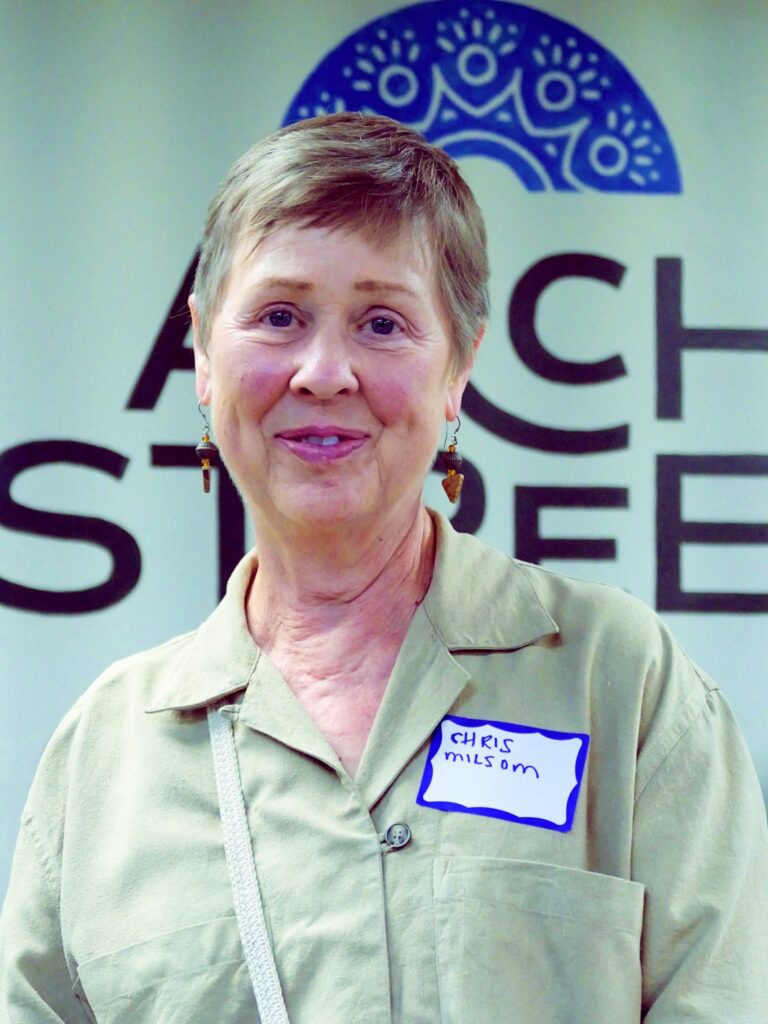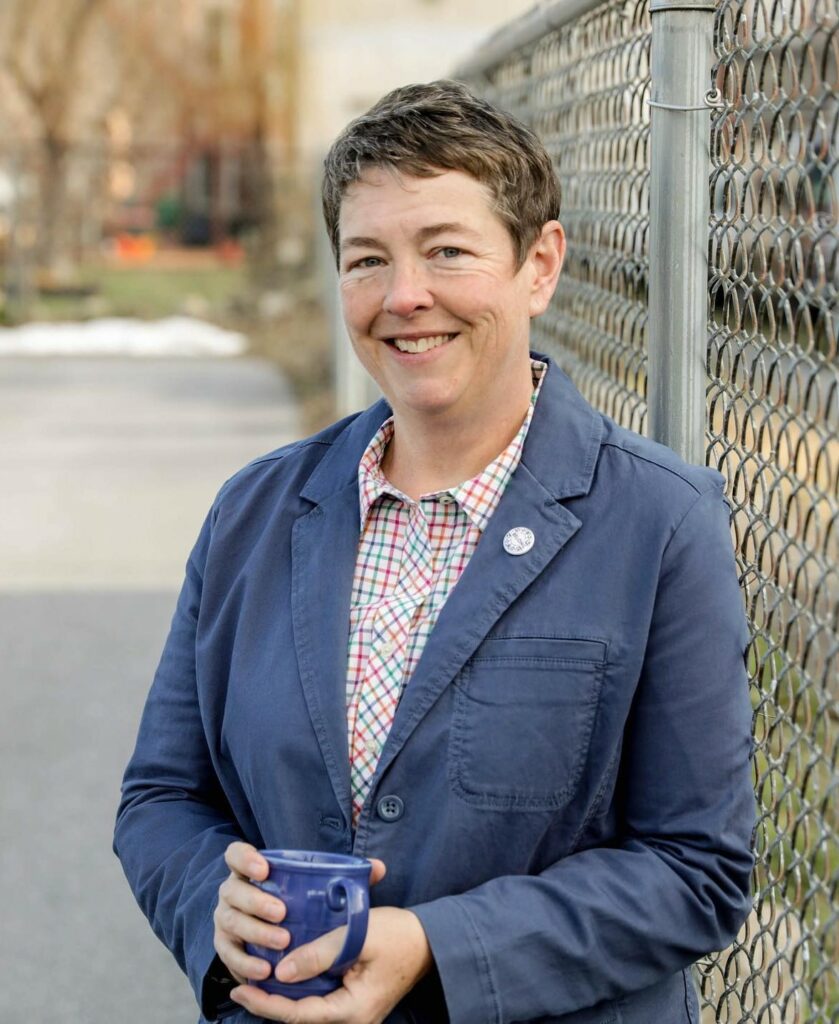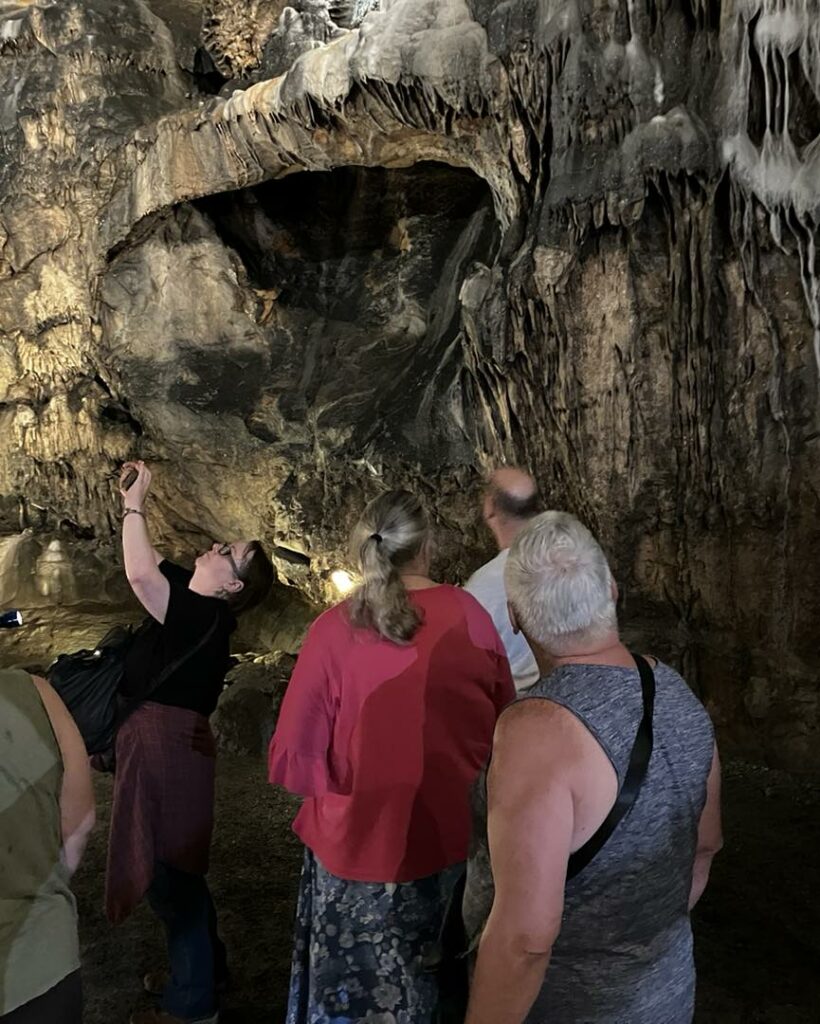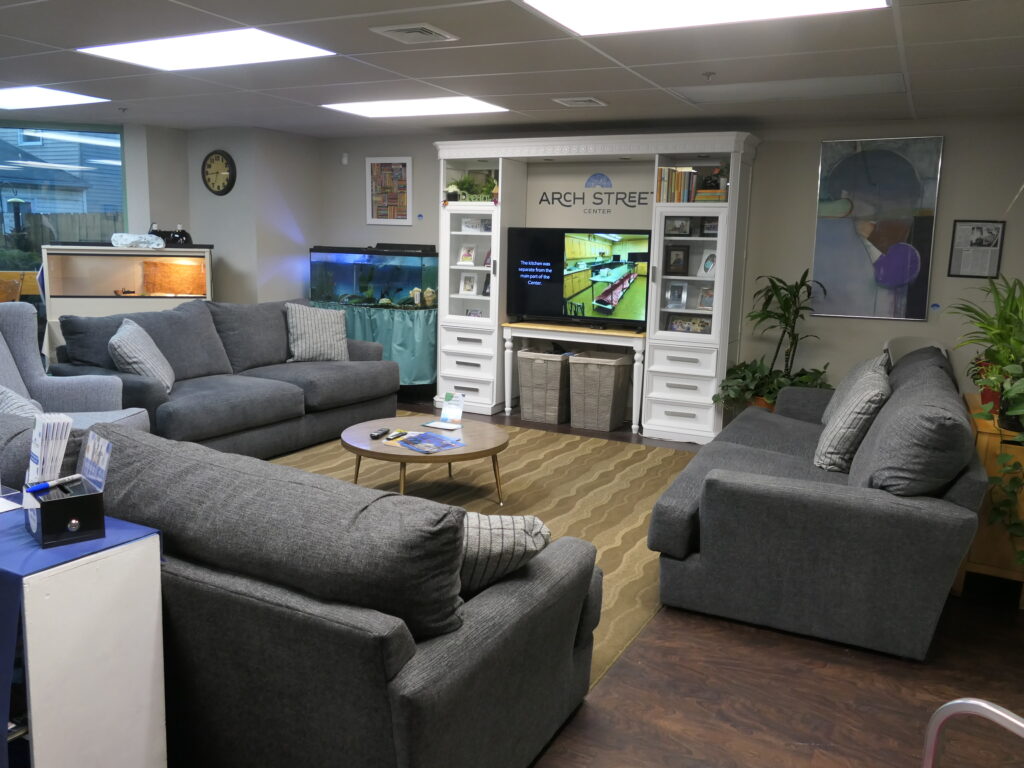There aren’t too many organizations out there that could have coaxed him out of retirement, Scooter Haase said.
“This is one of them,” the recently appointed executive director told his audience at Arch Street Center.
Located in Lancaster at 629 N. Market St., Arch Street Center is a day center for individuals with serious mental illness. It offers “social rehabilitation,” a therapeutic model that emphasizes interpersonal connection. It is centered around four components:
- Meeting basic needs for food, hygiene and shelter;
- Providing structured activities;
- Creating opportunities for community and socialization;
- Fostering empowerment and engagement.
Arch Street is the only social rehabilitation center in Lancaster County and one of just four in Pennsylvania.
Last month, the nonprofit hosted a reception celebrating its first decade on Market Street, where it moved after three decades at St. John Lutheran Church. The event also served to introduce Haase in his new role to Arch Street Center’s supporters and the community at large.
“I am thrilled to be here,” he said.
Haase, 61, came to the nonprofit sector after spending the first half of his career in the corporate world. Starting as director of operations at Water Street Mission, he served as its executive director from 2007 to 2013 and as Mental Health America of Lancaster County’s executive director from 2015 until his retirement in 2018.
That lasted until the summer of 2023, when he joined the Arch Street board at the invitation of its president, Teri Miller-Landon. At the start of 2024, with Miller-Langdon’s encouragement, he succeeded her as president.
Then the executive director, Ed McNanama, announced he was leaving at the end of April. The board asked Haase to take over as interim director. A couple of months later, the board voted to make Haase’s role permanent. (Miller-Langdon has resumed her role as president.)

The early days
Chris Milsom is one of the mental health case managers who collaborated to launch Arch Street Center in the early 1980s. The need was clear, she said: Following the deinstitutionalization movement of the 1960s and 1970s, most mentally ill individuals were being cared for in community settings, but many lived alone and struggled with isolation and inactivity.

She and her fellow founders, she said, envisioned a venue that would serve as a social club, offering activities and fellowship. In September 1983, Arch Street Center opened in the basement of St. John Lutheran Church on West Orange Street. The entrance was around the corner on Arch Street, hence the name.
Within six months, the Lancaster New Era reported at the time, it had 75 members and a group of volunteers known as the “Arch Supports.” Over time, its resources and its member base grew; for many years, it was a funded agency of United Way of Lancaster County.
In August 2000, Arch Street Center hired Susan Lilly as executive director. It was she who secured 629 N. Market St., launched the capital campaign to remodel it and shepherded Arch Street’s move there in 2014.
“It worked out so beautifully,” Director of Development Susanne Hershey Materia said. Arch Street ended up with vastly more space, at a building it owns and was able to remodel to suit its needs.

Lilly continued as executive director until 2022. “She gave us stability,” Milsom said.
Today Arch Street has a staff of nine and a cadre of volunteers who serve a member base of around 300 people. Members must be age 18 or older and must be referred by a case manager, physician or psychiatrist.
From the start, it has operated 365 days a year. These days, it is open from 9 a.m. to 5 p.m. Monday through Friday and from 11 a.m. to 5 p.m. Saturdays and Sundays.
It offers daily meals, daily activities such as games, crafts and bingo, and excursions that range from shopping runs to field trips to attractions such as the U.S. Army Heritage & Education Center in Carlisle and the Indian Echo Caverns in Hummelstown.
“It’s absolutely thrilling to me to see what it’s become,” Milsom said.

In a recent user survey, an overwhelming number of respondents said the center enhances their quality of life. More than six in 10 come four days a week or more.
The nonprofit’s motto is “I belong.” Members are coming because they want to, Haase said: Participation is entirely voluntary.
Arch Street Center’s operating budget is around $500,000 a year. A large fraction — $200,000 in 2025-26 — comes from Lancaster County’s Department of Behavioral Health & Developmental Services. Arch Street secures the remainder through grants and donations and by leasing some of the spaces in its parking lot.
In the past, in line with the “social club” model, the nonprofit would assess nominal charges for annual membership and meals, although it readily waived them in case of hardship. Today, all services are provided free of charge.

The first floor has several comfortable areas for meetups and activities, a computer lab and a large kitchen and dining area. There is a shower, a laundry room and lockers where members can store belongings. Upstairs are offices, including space where people can meet in private with case managers or medical personnel.
A number of Arch Street’s members are among Lancaster County’s unhoused. Recently, to provide them more assistance, the nonprofit has begun hosting provider partners on a regular basis. City social workers and case managers from Tenfold now hold weekly office hours. Penn Medicine Lancaster General Health’s street medicine team is there once a month.
“We’re trying to make it as easy as possible for them to get services,” Haase said.
His near-term priorities as executive director include some renovations to the building — not a surprise after 10 years of heavy daily use. The bathroom and shower area needs to be renovated, and the washers and dryers need to be replaced. And it’s time to start thinking about a new roof, he said.
Looking out a little farther, “I have big visions, he said. He wants to explore the idea of opening satellite locations in places like Columbia or Ephrata. Arch Street has members living out toward the edges of the county who are spending hours on the bus every day to make it to the downtown Lancaster location: Having a more convenient place to go would make a huge difference in their lives.
One of the best ways to see what Arch Street Center is about, he said, is to stop by during lunchtime: “That’s when it’s all happening.”
“When people come here, they fall in love with the place,” he said.






